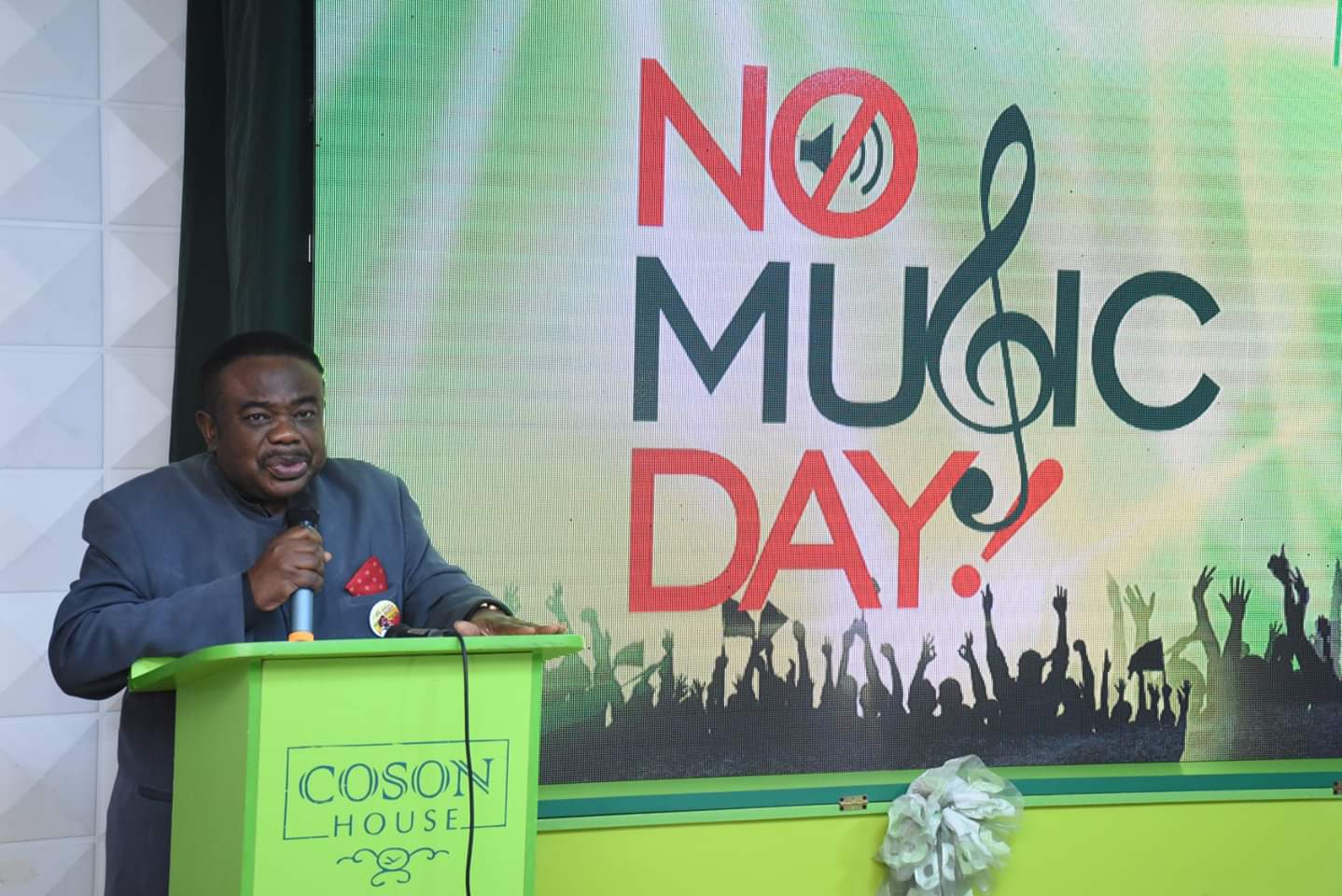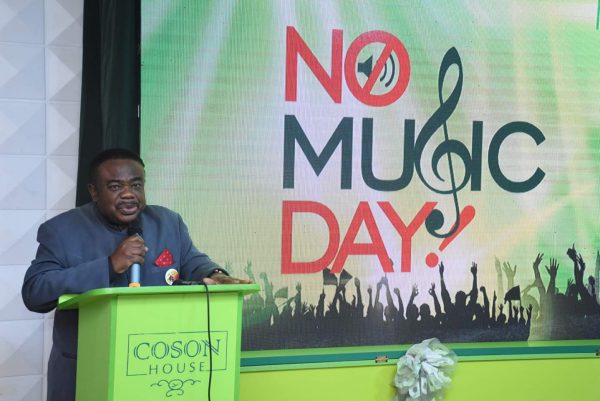The 1st day of September is No Music Day in Nigeria. A number of stakeholders in the Nigerian music industry met at the COSON House last week to commemorate the day. The event held this year at the Copyright Society of Nigeria (COSON) House in Ikeja, and it marked the tenth edition of No Music Day since the idea was institutionalized in 2009. Tony Okoroji, an intellectual property activist and the COSON Chairman, gave a sincere and moving speech. His words went beyond issues of music and copyright: they were a call to creatives to speak up against the troubling signs of division in Nigeria.
“Our musicians, writers, actors, broadcasters and others within our creative space must come out from wherever we are hiding to save the Nigerian nation from being dismembered with the attendant unimaginable cost.”
Nigeria’s No Music Day has an interesting history. In 2009, a large group of artistes staged rallies at the National Theatre in Iganmu, Lagos. The rallies were followed by a one week strike that began on the 25th of August. The intention to strike was announced at a massive press conference in July that year, about a month before the strike began. At the press conference, a body calling itself the Nigerian Music Industry Coalition (made up of industry bodies like the Performing Musicians Employers Association of Nigeria, the Nigerian Association of Recording Industries, the Performing & Mechanical Rights Society Ltd/Gte, Association of Music Business Professionals, the Music Label Owners & Recording Industries Association of Nigeria, and more) expressed their frustration with the ridiculous level of unchecked audio piracy in Nigeria at the time, and demanded a list of specific changes in law and government policy from Yaradua’s administration.
Since the infringement of copyright was acknowledged with a No Music Day on September 1 that year, No Music Day has been acknowledged every year in Nigeria on the 1st day of September. In May 2010, the Nigerian Copyright Commission (NCC), appointed the COSON as the sole Collective Management Organization (CMO) for the administration all rights, including royalties, for musical works and sound recordings in Nigeria. Tony Okoroji’s address at the COSON House last week was an important reminder of the need for social cohesion, and the responsibility each man owes to his society. His message ran in line with the theme of No Music Day 2019: No Compromise in Making the Music Pay. Creativity cannot be profitable in a broken system.
So what is No Music Day really about? On the first No Music Day in 2009, the Nigerian Music Industry Coalition requested that radio stations and broadcasting platforms play no music and that listeners at home would tune instead to discussions and talks on radio and TV about the importance of copyright and the dangers of piracy. Every year, the request is the same. The idea is to sensitize the public, and develop a respect for music as an art in Nigeria. But No Music Day is more than just a day to remember the rights of artists and musicians in the creative industry. It points to the need for collaboration between the government and the people, as well as the need for every member of society to work towards systems and processes that are a benefit to everyone.
Sources
kol-jdiiid.blogspot
Musicinafrica
BBC
Coson NG
The Nigerian Voice
The Guardian NG
Featured image source: Yes International Magazine


